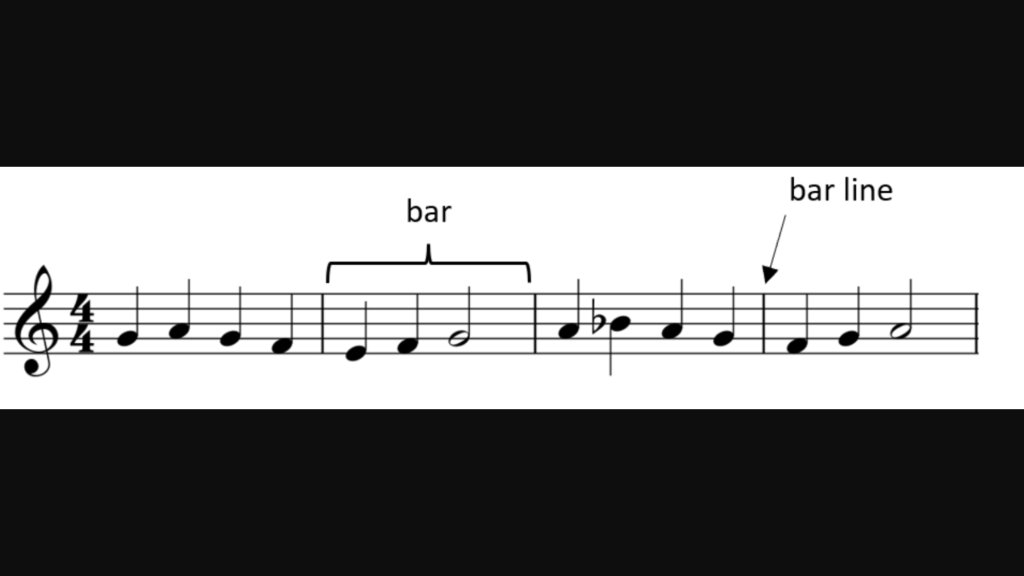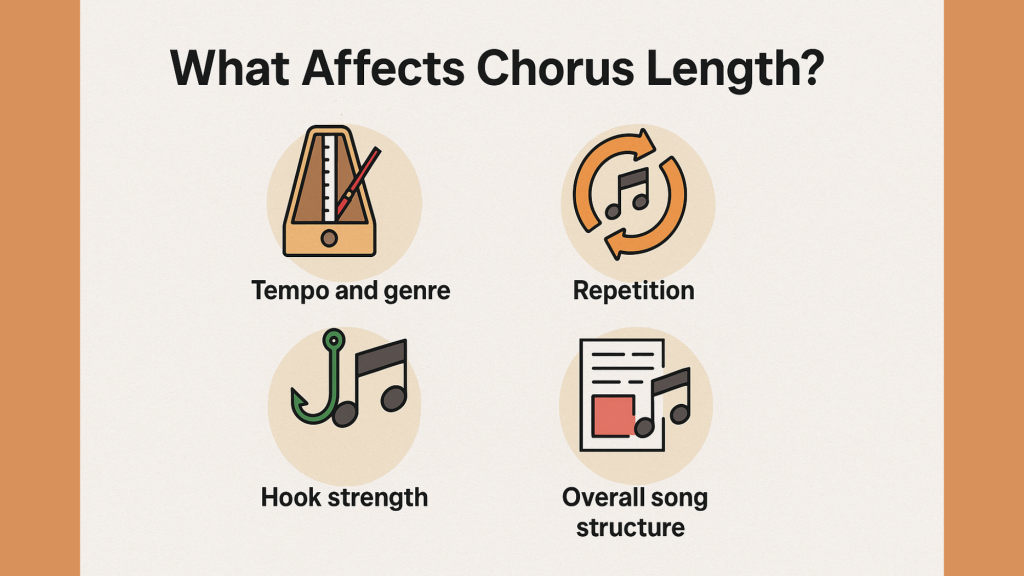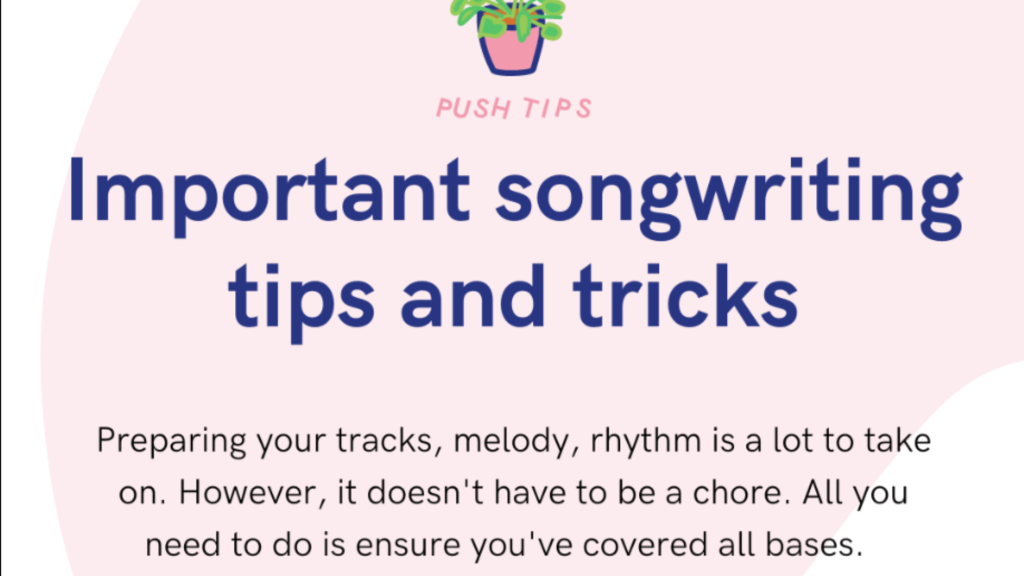A chorus is the part of a song that repeats and sticks in your head. It’s usually the most powerful and catchy section, designed to pull listeners in.
Knowing how many bars go into a chorus helps in shaping the structure of a song.
Songwriters often plan the bar count to fit the rhythm and energy they want. Whether it’s a pop hit or a rap track, the bar count can guide how the chorus flows.
It also helps producers and musicians keep the parts of the song balanced and clear. A well-timed chorus can make a song feel complete and polished.
What is a Bar in Music?

A bar (or measure) is a segment of time in music defined by a set number of beats, or basically, a group of beats.
For example, in a 4/4 time signature, each bar has four beats. Bars help musicians and producers organize notes and rhythms clearly.
Time signatures show how many beats are in each bar and help keep the song steady. Most modern music uses 4/4 time, so it’s easy to count bars in that setup. Understanding bars is important when building song parts like verses, choruses, and bridges.
Average Number of Bars in a Chorus
Most choruses fall between 8 and 16 bars long. This gives enough time to repeat lyrics and let the melody settle in.
An 8-bar chorus is short and punchy, great for fast-paced songs. A 16-bar chorus feels fuller and gives more space for emotions or complex hooks.
Common chorus bar lengths:
- 8 bars (quick and catchy)
- 12 bars (less common, but used)
- 16 bars (more depth and room for melody)
Pop and hip-hop songs usually stick to 8 or 16 bars.
Examples from Popular Songs
Look at some of the popular songs out there. This will help you understand how choruses are structured:
- Shape of You by Ed Sheeran: 8-bar chorus
- Rolling in the Deep by Adele: 8-bar chorus
- Lose Yourself by Eminem: 16-bar chorus
- Uptown Funk by Bruno Mars: 8-bar chorus
- Hound Dog by Elvis Presley: 12-bar Chorus
These examples show how artists adjust the bar count to fit the mood and style. Each chorus effectively supports the lyrics and beat of the song.
What Affects Chorus Length?

Several things can change how long a chorus should be:
- Tempo: Faster songs often use shorter choruses to keep pace
- Genre: Pop favors quick, tight choruses; rock or R&B may stretch them out
- Hook Strength: Strong hooks can be repeated quickly or extended
- Song Structure: The chorus needs to blend well with the verses and bridges
These elements shape how the chorus fits into the whole song. The goal is always to keep listeners interested and connected to the message or mood.
Real Song Example
To better understand how songs are built, here’s a breakdown of Someone Like You by Adele (2011). The structure is divided into parts, with estimated bar counts:
Intro (4 bars):
I heard that you’re settled down
That you found a girl and you’re married now
Verse 1 (8 bars):
I heard that your dreams came true
Guess she gave you things I didn’t give to you
Old friend, why are you so shy?
Ain’t like you to hold back or hide from the light
Pre-Chorus (4 bars):
I hate to turn up out of the blue, uninvited
But I couldn’t stay away, I couldn’t fight it
I had hoped you’d see my face
And that you’d be reminded that for me, it isn’t over
Chorus (8 bars):
Never mind, I’ll find someone like you
I wish nothing but the best for you, too
Don’t forget me, I beg
I remember you said
Sometimes it lasts in love, but sometimes it hurts instead
Sometimes it lasts in love, but sometimes it hurts instead
Verse 2 (8 bars):
You know how the time flies
Only yesterday was the time of our lives
We were born and raised in a summer haze
Bound by the surprise of our glory days
Pre-Chorus (4 bars):
I hate to turn up out of the blue, uninvited
But I couldn’t stay away, I couldn’t fight it
I had hoped you’d see my face
And that you’d be reminded that for me, it isn’t over
Chorus (8 bars):
Never mind, I’ll find someone like you
I wish nothing but the best for you, too
Don’t forget me, I beg
I remember you said
Sometimes it lasts in love, but sometimes it hurts instead
Bridge (4 bars):
Nothing compares, no worries or cares
Regrets and mistakes, they’re memories made
Who would have known how bittersweet this would taste?
Chorus (repeated, mostly 8 but possibly 12 bars for final repetition):
Never mind, I’ll find someone like you
I wish nothing but the best for you
Don’t forget me, I beg
I remember you said
Sometimes it lasts in love, but sometimes it hurts instead
Never mind, I’ll find someone like you
I wish nothing but the best for you, too
Don’t forget me, I beg
I remember you said
Sometimes it lasts in love, but sometimes it hurts instead
Sometimes it lasts in love, but sometimes it hurts instead
Outro (4 bars):
Sometimes it lasts in love, but sometimes it hurts instead
Sometimes it lasts in love, but sometimes it hurts instead
This example shows how the bar count fits into the emotional and musical flow of the song. Each section has its purpose and supports the chorus’s impact.
Tips for Songwriters

When writing a chorus, it helps to:
- Keep it easy to sing and remember
- Let the energy peak in this part of the song
- Choose a bar length that supports the lyrics and beat
- Use repetition wisely to make it memorable
- Test different bar counts and see what clicks best
Don’t be afraid to adjust as you go. The right length is the one that feels natural. Sometimes the best chorus is the one that breaks the rules but still sounds great.
Choruses are usually 8 to 16 bars, but it’s not a strict rule. What matters is how it sounds and flows. Knowing the basics of bar counts and how they affect the feel of a chorus can help songwriters build stronger music.
Whether short or long, a chorus should bring out the heart of the song. The best choruses are the ones that stay in your head and make you want to hear them again and again.
Frequently Asked Questions
Why are Most Choruses 8 or 16 Bars?
8 or 16 bars fit well with the structure of most songs and make the chorus catchy and easy to remember.
Does the Bar Count Change by Genre?
Yes. Pop usually uses 8 or 16 bars, hip-hop often uses 4 to 8 bars, and rock may use 8 to 16 bars or more





















